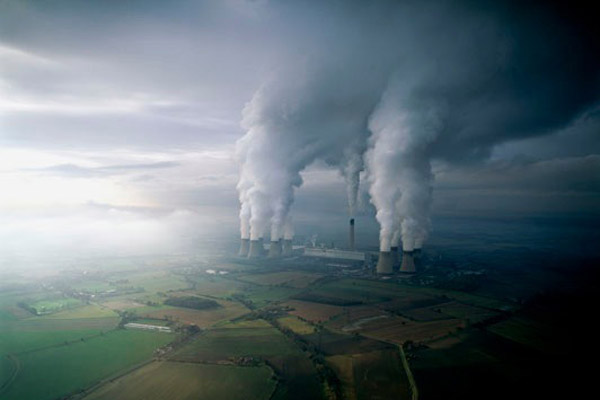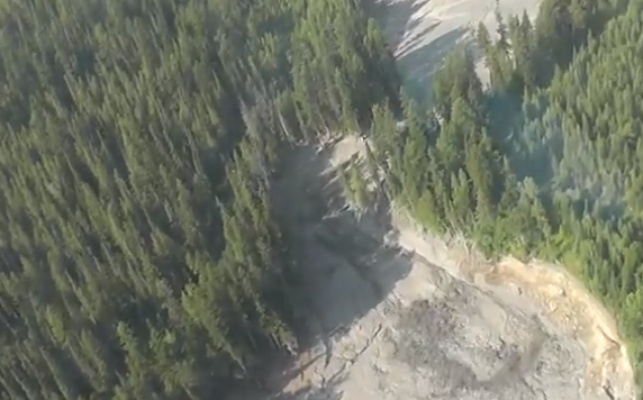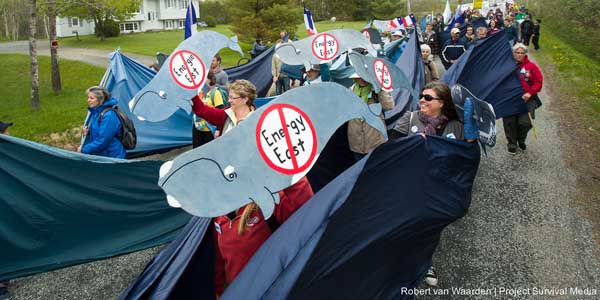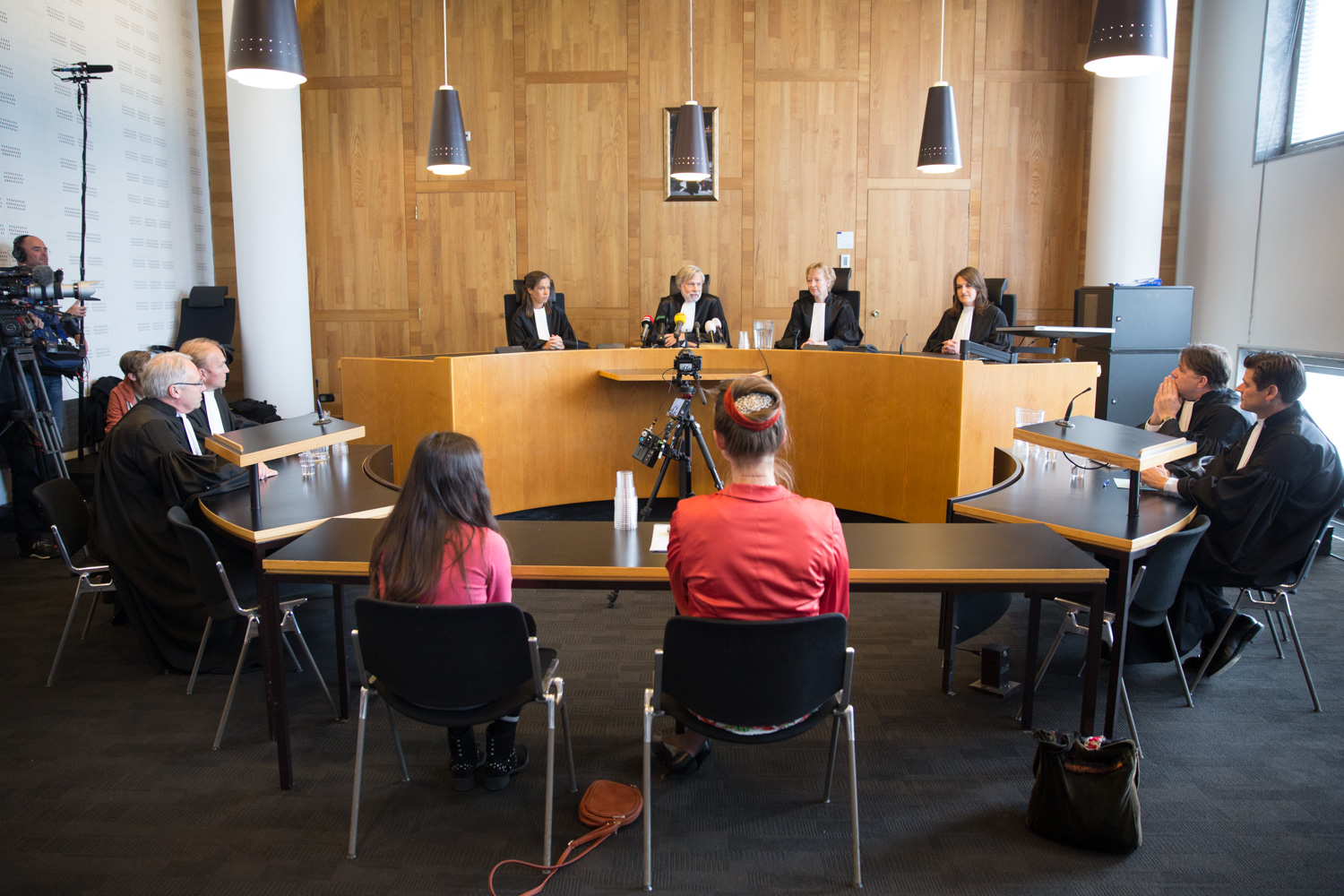
Reposted from DemocracyNow, Dec 1, 2015
TRANSCRIPT
AMY GOODMAN: This is Democracy Now!, democracynow.org, The War and Peace Report. I’m Amy Goodman with Part 2 of our conversation with Naomi Klein, the journalist, the best selling author, film-maker. Her most recent book is, “This Changes Everything: Capitalism vs. the Climate.” She also has made a film with Avi Lewis by the same title, “This Changes Everything.” I guess the question, Naomi, that I want to begin the second part of the conversation with is, does this climate summit, COP21, here in Paris, France, does this change actually everything?
NAOMI KLEIN: Does the summit change everything? No, I mean climate change changes everything. And you know, if we stay on the road we’re on and the summit isn’t headed towards doing nearly enough to get us off that road, then everything changes about our physical world. I mean, these are the stakes. It means entire island nations disappear, hugely populated coastal cities are threatened by sea level rise. That’s the road we’re on. Big agricultural failure on the scale of, you know, 60 percent. We’re already seeing crop failure in California in the midst of drought. So we’re not talking about some theoretical crisis off in the future. But what we know about climate change is there’s something about this crisis that makes it very hard to keep on the political front burner. Right?
In Copenhagen there was a lot of momentum — Copenhagen in 2009 — the last time there was one of these huge summits that was supposed to save the world there was a lot of momentum on climate action, but then the financial collapse happened in 2008, the year before, and by the time that governments gathered in 2009 conversation was already shifting away from climate towards everything having to be about the economy, and all of these resources that would have been spent on climate action being diverted to bail out the banks and then cutbacks. This has been felt very strongly in Europe where, all over southern Europe supports for renewable energy have been slashed under the banner of economic austerity, and under the banner of fighting debt. Countries like Italy and Greece are drilling for oil off shore. Italy’s planning to double the amount of oil they drill for offshore. Public transit fees go up. Rail systems are privatized. So there’s a real connection between the economic crisis, austerity and the ability to act on climate. And yet we usually talk about these as totally separate issues.
And here we are in Paris, a city in mourning after the horrific attacks of November 13, and we’re also seeing how the conversation is shifting to war, security all the time, and we’re failing, so often, to make the connection between the drivers of war and the drivers of climate change. Amy, they’re the same thing. I mean, if we look at the region, um, that is so destabilized, why? Because of foreign wars fought over oil and gas, the very resources that are causing climate change. And then you have the impacts of climate change being felt so acutely in the Middle East, a historic drought in Syria before the outbreak of civil war that led to big crop failure and an internal migration of 1.5 million people which accelerated the conflict.
AMY GOODMAN: A new report has just come out that said that Gulf states, it will be soon be too hot to stay outside more than a couple of hours at a time.
NAOMI KLEIN: Yeah, I mean, and this is — that, that study, which was published in Nature Climate Change, I believe. Yeah, it talked about how, by the end of the century, huge parts of the Middle East would become uninhabitable. But even this past summer in India, more than 2,000 people died in a heat wave. It’s already unlivable. And it’s also highly unequal. If you have access to air conditioning, you know, if you have access to bottled water and all of these things that make it easier to live through a heat wave, then it’s not going to impact you in the same way as if you are vulnerable to the elements. And this is, why outside of the summit, there is such a strong focus on the need for climate justice, to understand that it is the people who have done the least, the poorest people on the planet, who have emitted the least carbon, um, who are feeling the impacts first and worst.
AMY GOODMAN: If you could ask President Obama a question here, what would that question be? And then I want to ask about the new leader —
NAOMI KLEIN: What took you so long?
AMY GOODMAN: — of Canada. What?
NAOMI KLEIN: What took you so long?
AMY GOODMAN: Were you satisfied with his speech here?
NAOMI KLEIN: It’s not about speeches at this point, Amy. And, look, Obama — and I’ve said this to you before on the show — Obama sounds like a climate leader, there’s not doubt about that, but he doesn’t — and he’s even starting to do some of the things that — some of the actions that are aligned with a climate leader, like canceling the Keystone XL pipeline. It shouldn’t have taken three years or more to make that decision, but it’s good to see, in the final days — in the final years of his presidency. He shouldn’t have needed Shell to pull out of the Arctic before putting more restrictions on those leases that will make it very hard for them to go back in. But, finally he’s starting to do it. But there’s still this illusion of an all of the above energy, uh, uh, energy pathway where you can say yes to fracking for gas and say yes to handing out more and more oil leases on public land and at the same time have support for renewables. So, I think he is still trying to have it all ways, but we are seeing some positive signs.
AMY GOODMAN: So let’s go north to your country, to Canada. A very unusual victory just took place, Justin Trudeau. Explain who he is, um, and where he stands on the environment and climate change.
NAOMI KLEIN: Yeah, so we’ve had a few unusual — well, not really unusual, frankly. The Liberal party, which Justin Trudeau is the leader of is sometimes referred to as the natural governing party of Canada. It actually was more unusual that we were governed for the past eight years by hard right government in the form of Stephen Harper.
Justin Trudeau is the son of Pierre Elliott Trudeau, former prime minister of Canada. You know, he comes from this political dynasty. And we know the liberals. They’ve been in power for most of my life. So this isn’t so extraordinary, it’s a relief, I think, not just for Canadians, but for pretty much everybody here. A lot of people at the climate summit here at Paris are very happy that they’re not dealing with Stephen Harper and Tony Abbot in Australia who are two of the most obstructionist leaders. But we still have a huge amount of work to do in Canada. Justin Trudeau was very vague on climate during the election campaign.
AMY GOODMAN: And where is he now, when it — at this climate summit?
NAOMI KLEIN: Um, It’s still vague. I mean, he’s kind of using the fact that, the summit is so soon after taking office to say we can’t come with anything significantly more ambitious than the previous government. Give us time. Which makes a certain amount of sense. The problem is just that we don’t have time. And this is the problem all of our leaders have to contend with, is that, you know, their predecessors have wasted so much time and made the problem so much worse that they now need to act with tremendous amount of ambition and speed. And that politically difficult, but that’s what we need them to do.
AMY GOODMAN: And didn’t you have indigenous leaders immediately occupying, was it the front yard of Justin Trudeau’s home?
NAOMI KLEIN: Yeah, different groups, including 350 Canada, and different indigenous groups, organized what they called the climate welcome for Justin Trudeau, precisely because climate change was not on the front burner during the election campaign, was very much, sort of a foot note, and also, just listening to what Justin Trudeau was saying during the election campaign. He was criticizing Harper for doing a — not a good enough job selling the Keystone XL pipeline. Justin Trudeau has said some supportive things about another huge tar sands pipeline that would run through eastern Canada, called Energy East. You know, just as bad as Keystone, if not worse. So we need to continue to put pressure on him.
And we, you know — my hope is just that Canadians have learned from what happened with Obama in 2008 where there was so much relief after getting George W. Bush that people thought, oh we can just relax, right? We have this likable president. In Canada we saw how that, how that worked out, in that a lot of time was lost. And we see that Obama is a much better president when he’s under pressure from below. So what we need to do, in Canada is learn, from that experience and put pressure on Justin Trudeau from day one.
AMY GOODMAN: You know, one of the last times we spoke, you had just come back from the Vatican. You were invited there, I think it was Independence Day weekend in the United States, to be part of — to address many people around the issue of the Pope’s encyclical on the environment and climate change. I wanted to turn to the Pope, who’s in the midst of this Africa trip, speaking in Nairobi, Kenya. Pope Francis said it be catastrophic if particular interests prevailed over the common good of people and the planet at the U.N. climate talks here in Paris.
POPE FRANCIS: [translated] In a few days an important meeting on climate change will be held in Paris, where the international community will once again confront these issues. It would be sad, and I dare say even catastrophic were particular interests to prevail over the common good and lead to manipulating information in order to protect their own plans and projects. COP21 represents an important stage in the process of developing a new energy system which depends on a minimal use of fossil fuels, aims at energy efficiency and makes use of energy sources with little or no carbon content. We are faced with a great political and economic obligation to rethink and correct the disfunctions and distortions of the current model of development.
AMY GOODMAN: That was Pope Francis speaking in Nairobi, Kenya, saying it would be catastrophic if particular interests prevailed over the common good of people and planet at the U.N. talks. Naomi Klein, you’re well versed in the Pope these days.
NAOMI KLEIN: I don’t know about that, but I do think that the Pope’s voice and the Pope’s encyclical — it’s certainly very present here, is being invoked in a lot of the speeches and, you know, the thing about these conferences, Amy, is they’re so intensely bureaucratic. The first time I went to one of these conferences I carried around a glossary in my back pocket of all of the acronyms so that I could just understand what was going on. And I think what the Pope’s voice does, in this moment, is it inject that moral — that moral voice that says this is about people, this is a moral crisis, so there’s a moral imperative to act.
And it’s also another reminder, you know, one of the things we heard in the opening was we heard from Christiana Figueres who is, sort of, in charge of all of this for the United Nations, and she said never has — I think what she said was, never has so much been in the hands of so few. You know, she’s talking to the leaders, you hold the world in your hands. And I understand what she was trying to say, the spirit of that, to try to, you know, convince these leader to try to live up to their historical moment. But what I thought, hearing that was actually — that’s not true. During Copenhagen, we acted as if our leaders —- we could put our trust in our leaders and we, sort of, begged them to act. We are in a different moment where there are many other voices who are acting and changing the game, including the Pope, including the divestment movement, include—-
AMY GOODMAN: And you mean by the divestment movement?
NAOMI KLEIN: The fossil fuel divestment movement led by students, you know, and faith groups, and cities. There are so many other actors beyond just these leaders who, frankly, have been dragged, kicking and screaming to this moment, and you know, if they don’t act they may be replaced with other leaders and we’ll push those leaders too. I have to just add one thing that I — to correct something that I said earlier: I said that the climate welcome in Canada was 350 and different indigenous groups, which it was, but there were other groups involved too, including Greenpeace Canada who’s played a really key role.
AMY GOODMAN: And I wanted to end with a question about your own work. Your book came out a few years ago, “This Changes Everything: Capitalism vs. the Climate.” Now your film done with Avi Lewis has come out, “This Changes Everything.” And you’re taking a very different approach to most people who make a film in terms of distribution. What are you doing with it, and how is it being received around the world?
NAOMI KLEIN: Well, so, the thing that I think is most different is that we’ve done film festival releases, and it’s been in theaters, and in Europe and in North America, you know, more conventional distribution, but we also made sure, and Avi was very clear on this, that the movements had to have access to the film right away, particularly in the run up to the Paris Summit. And so, usually, you’re not able to organize a community screening until a year after it’s been released at film festivals, and after the theatrical run is already over, but, we’ve managed to have this all simultaneous. So what’s been wonderful for us to watch is how different social movements have used the film just as a meeting space, and it’s been shown in — and to get the conversation started, because, for whatever reason, it’s easier to get people into a room when there’s a screen involved than if you just say lets get together and talk about climate change. So Avi and I like to say we’re just the excuse to get people into the room and then the real work begins.
But, you know, in Amsterdam, Greenpeace organized a screening where they projected the film on the side of a coal fired power plant, and they were tweeting, well if you’re looking for “This Changes Everything,” follow the smoke. And they showed it to, I think, 1200 people. In Manilla they showed it in a shopping mall filled with celebrities. So it’s just been a tool, and that’s all we can hope for.
AMY GOODMAN: Well, as we wrap up, speaking of tweeting, you just tweeted this morning, um, the Chinese leader talking — giving his speech here at the U.N. Summit.
NAOMI KLEIN: Yeah, so he said that, um, that we shouldn’t see the Paris agreement as the finish line, but the starting point. I just tweeted, only at the United Nations does it take 21 years to get to the starting point. Because, you know, the hashtag is COP21, and that is because we’ve had 21 of these meeting, Amy. And, in fact, our governments have been meeting about lowering emissions since 1988, and in that time emissions have gone up by more than 60 percent. So we can’t afford for this just to be the beginning, and that’s why, in Canada, we called our manifesto the Leap Manifesto, because we often hear, oh this is a step in the right direction. It’s a small step. It’s the beginning. And we’re past the point of small steps. We need to leap.
AMY GOODMAN: Naomi Klein, thanks so much for being with us Naomi Klein, journalist, author. Her most recent book, “This Changes Everything: Capitalism vs. the Climate.” Together with Avi Lewis, they have also done a film that is called this changes everything. This is Democracy Now! We’re broadcasting live from the summit here in Paris, it’s the U.N. Climate Summit, COP21. Thanks so much for joining us. SOURCE
RELATED:
‘This Changes Everything’ Director Avi Lewis On Why He’s Disappointed With President Obama On Climate Change










